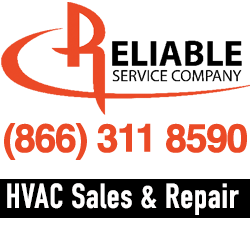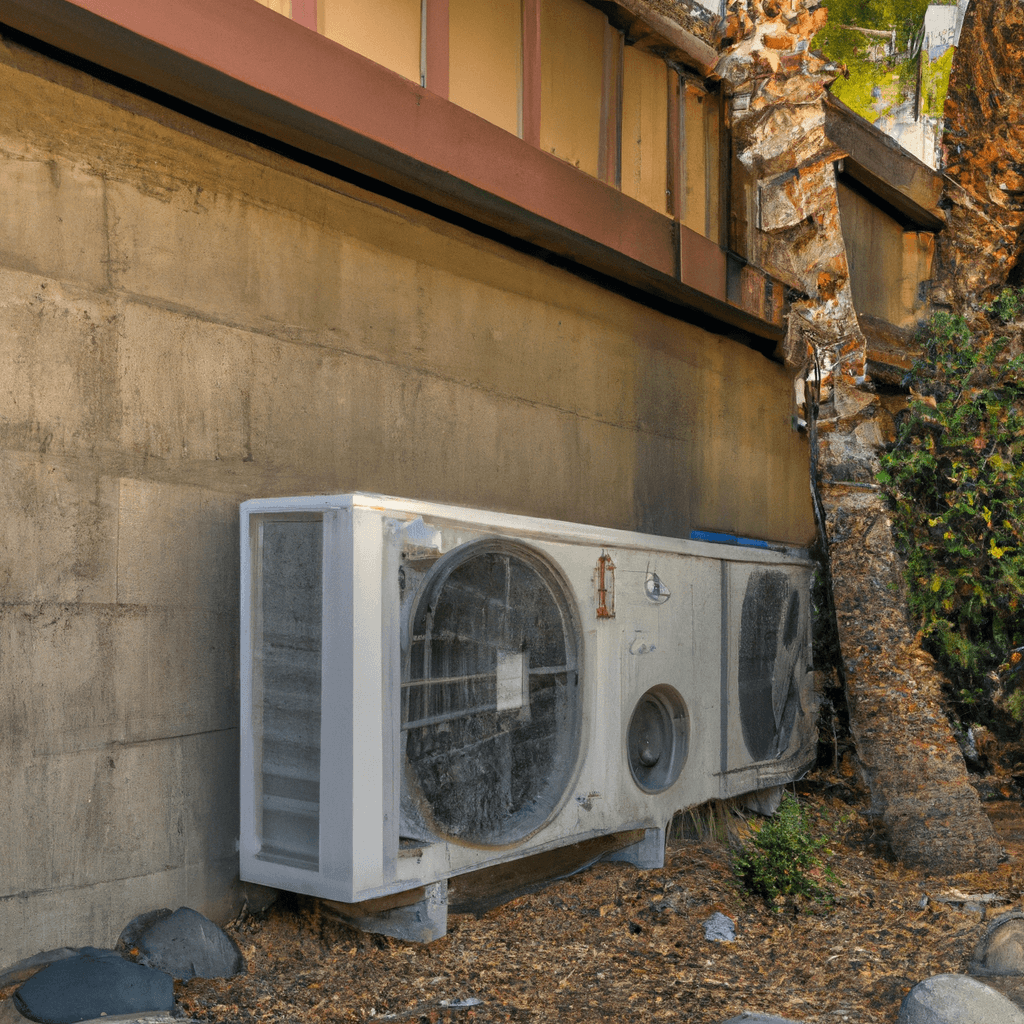How to Troubleshoot Capacitor Problems in AC
Capacitor problems are one of the leading causes of air conditioner (AC) failure. When the AC no longer generates cool air or when it’s running at inefficient levels, it is likely that the unit’s capacitor is failing. To avoid costly repairs or, worse yet, a full AC replacement, it is best to identify and address capacitor-related issues right away.
Diagnosing the Problem
When a capacitor is having trouble, it is important to diagnose the problem quickly and accurately. To rule out any other factors, the first step is to check on the unit’s breaker and make sure that the power source is on. After verifying that the breaker is working, take a closer look at the capacitor. Usually, a failing capacitor will have distortions such as bulges, clouds, and leaks.
Taking Immediate Action
If the capacitor looks to be compromised, the next step is to replace it. To do so, it is important to turn off the power source and disconnect the AC unit. Never attempt to repair an AC with the power still on. Once the power has been turned off, remove the capacitor and replace it with a new one that is of the same size and amperage. When installing the new capacitor, take note of the manufacturer’s instructions on how to correctly attach the wires.
Knowing When to Call a Professional
If the problem persists even after replacing the capacitor, it is a sign that the AC has a deeper issue and is likely in need of professional help. In this situation, it is best to contact a qualified appliance repair technician. These professionals are trained to promptly diagnose and repair AC malfunctions. Additionally, they are experienced in working with a wide variety of air conditioners and can help troubleshoot Capacitor problems in AC units of any make and model.
A broken AC due to capacitor issues is not only inconvenient but also can be costly if the issue is not addressed right away. To avoid more serious problems, it is usually best to seek help from a professional. In most cases, taking the DIY route is not feasible and can only lead to further damage and increased repair costs. Therefore, if your AC is in need of a capacitor replacement or seems to have a bigger problem, it is best to contact a local reliable appliance repair shop to diagnose and take care of the issue.
Professional Help is Crucial
When dealing with AC problems, it is essential to contact a reliable appliance repair company. Not only will they be able to accurately identify the issue and advise on the best course of action but they can also help install the right capacitor so that your AC is running well and energy-efficiently. Furthermore, a qualified technician can provide tips on extended lifespan and properly maintaining your air conditioning unit.
Final Advice
Troubleshooting capacitor problems in AC units can be a tricky and complicated process. To prevent further damage to the unit and ensure a safe, consistent airflow, it is best to contact a professional Repair Specialist if you suspect there is an issue with your air conditioning unit. Qualified technicians are trained in AC repair services and can safely diagnose and repair any malfunction.



Capacitor Problems in AC: Manufacturer, Company and Technician Recommendations
For HVAC systems, capacitors often play an important role. A capacitor is an electronic device that stores electric charge and is used to start and run systems. In the context of air conditioning, capacitors are essential components for efficient operation and longevity. Therefore, it is important to take preventive measures to avoid capacitor problems in air conditioning systems. The following offers manufacturer and technician recommendations in order to ensure that the system runs efficiently and effectively for a long time.
Connect Properly
It is important to connect the capacitor correctly. There are two types of capacitors: start capacitor and run capacitor. The start capacitor is used to provide an initial push to the motor when it starts up, while the run capacitor is used to keep the motor going. It is important to verify that the capacitor is in good condition and that the wires are properly connected. Incorrect wiring can lead to capacitor malfunction, resulting in reduced performance or even failure.
Replace Regularly
Another important preventive measure is to replace the capacitor regularly. Depending on the type of air conditioning system, capacitors can last anywhere from five to fifteen years. As the age of a capacitor increases, its performance is likely to decrease, leading to potential problems. Therefore, it is important to check the capacitor on a regular basis and replace it when necessary.
Work with Reliable Professionals
When dealing with Capacitor problems in AC systems, it is important to work with a reliable and qualified professional. Many companies and technicians offer their services for HVAC systems, and it is important to work with a partner who is knowledgeable and experienced. It is also important to make sure that regular maintenance checkups are conducted, as this will help to identify any potential issues or problems before they get out of hand.
Use Quality Components
The quality of components and materials used matters, and it is important to only use quality and reliable components. When it comes to capacitors, it is important to get components from a trusted and reliable source. Some capacitor manufacturers offer warranties, which can help to protect the owner in case of malfunctions or issues. It is also important to use components that have been tested and certified, as this ensures that the item is up to standard.
Stay Up-to-Date
Technology is rapidly changing and developing, and it is important to stay up-to-date on the latest developments. For instance, newer capacitors may be more efficient and reliable than older ones. It is also wise to read up on the latest technological advances and changes, as this will help to ensure that the HVAC system remains efficient and reliable.
Preventive action and regular maintenance are essential when it comes to capacitor problems in AC systems. By following the manufacturer and technician recommendations discussed above, homeowners and technicians can ensure that their HVAC systems run efficiently and effectively for a long period. Additionally, it is important to use quality components, stay up-to-date on the latest developments, and work with reliable professionals in order to enjoy durable and comfortable results.
Average Repair Cost for Capacitor Problems in AC
Having a capacitor issue in your AC is a common problem. To save time and money, it is best to call Local Reliable Air Conditioning & Heating at (866) 311-8590. They have experienced technicians who can easily identify the source of the problem and repair it without you having to pay for unnecessary replacement parts.
On average, the repair cost for a capacitor issue in an AC can range from $235 to $532. This cost incorporates any necessary labor, diagnosis and repair of the unit. The cost is likely to be higher if multiple capacitors need to be replaced or a complex repair is required. In California, the typical repair cost could be 20% higher than the average, due to the state’s higher cost of living and the scarcity of parts.
Parts that may be needed to fix the capacitor issue in an AC include:
– Start Capacitor: $25-$50
– Run Capacitor: $120-$260
– Relay: $25-$50
– Compressor: $200-$370
Generally, the repair cost will depend on the parts involved, the complexity of any repair, and the price of the labor itself. Materials costs are typically negligible, but they will factor into the final bill. It is important to know exactly what parts are needed to ensure that you aren’t paying for anything unnecessary.
If you have any questions about the repair of your AC’s capacitor issue, or if you’re trying to estimate a repair and installation cost, Local Reliable Air Conditioning & Heating can provide you with professional guidance. Contact them today.
How California Reliable Air Conditioning & Heating Easily Handles Capacitor Problems in AC
California Reliable Air Conditioning & Heating is a family-owned business that offers same-day services for appliance and HVAC repair and installation. Their team of highly trained technicians have a minimum of five years experience with AC capacitor problems, allowing them to effectively diagnose and repair the issue quickly and efficiently.
The company offers fair and affordable pricing and is licensed and insured, providing customers with added peace of mind. They offer customers a 90-day warranty on all repairs giving even more value to their services. With same-day services and expertise to handle even the most difficult AC capacitor problems, Reliable Air Conditioning & Heating is the go-to solution for all your air conditioning needs.
Whether you are having issues with capacitor problems in AC or other appliance or HVAC problems, Reliable Air Conditioning & Heating has the experience and expertise to quickly and accurately diagnose and repair the issue. Same-day services, fair and affordable pricing, and a 90-day warranty on all repairs make California Reliable Air Conditioning & Heating the local, trusted provider for all your air conditioning repair needs.
FAQ – How to Troubleshoot Capacitor Problems in AC
What are capacitor problems in AC?
Capacitor problems in AC occur when capacitors in the air conditioning unit fail or wear out over time. The capacitors help the air conditioning unit run properly and their failure or wear can cause loss of cooling, an increase in energy costs, and other types of equipment problems.
How to identify capacitor problems in AC?
To identify capacitor problems in AC, you need to identify signs that indicate failure. These include noises from the unit, poor cooling performance, poor airflow, warm air, and a burning smell near the air conditioner. You may also see sparks or smoke from the unit.
What are the most common capacitor problems in AC?
The most common capacitor problems in AC are leakage, failure, and deterioration of the capacitors. Leaks can occur when the insulation breaks down, while failure is when the capacitor shorts out and no longer works. Deterioration happens when the capacitor is weak and can no longer provide sufficient power to the unit.
How do you troubleshoot capacitor problems in AC?
To troubleshoot capacitor problems in AC, you first need to choose the right replacement capacitor. This will depend on the size of the capacitor and the specifications that the unit requires. Then, you need to disconnect power to the unit before you open it and access the capacitor. After disconnecting the power, you can then remove the old capacitor, clean the area, and install the new capacitor.
What precautions should be taken when handling a capacitor in AC?
When handling a capacitor, it is important to wear protective gear and exercise caution. A capacitor is a high-voltage device and can store high levels of energy. You also should avoid touching the metal parts of the capacitor or allowing it to discharge nearby.
For more information or help troubleshooting capacitor problems in AC, call a local, reliable appliance repair technician at (866) 311-8590.

